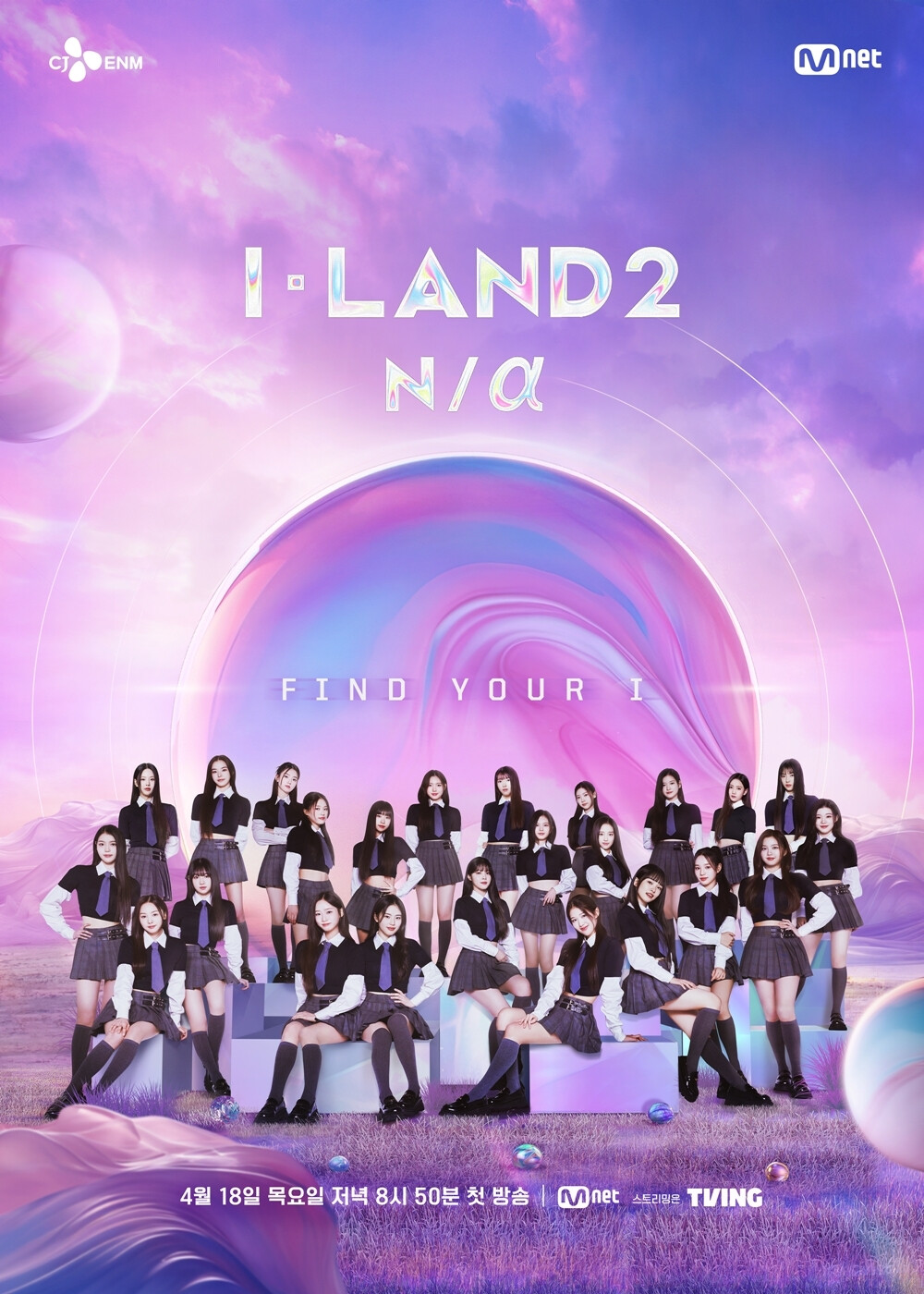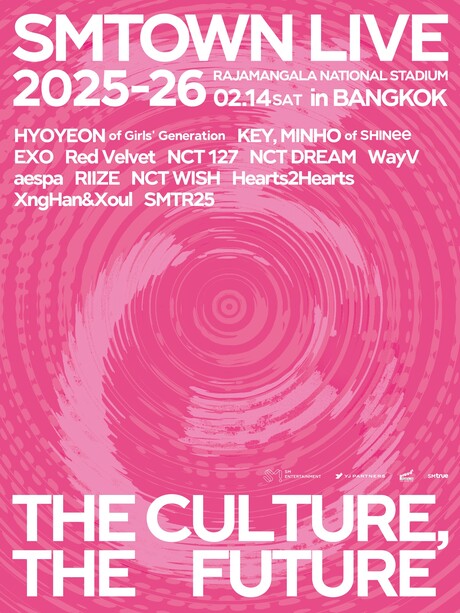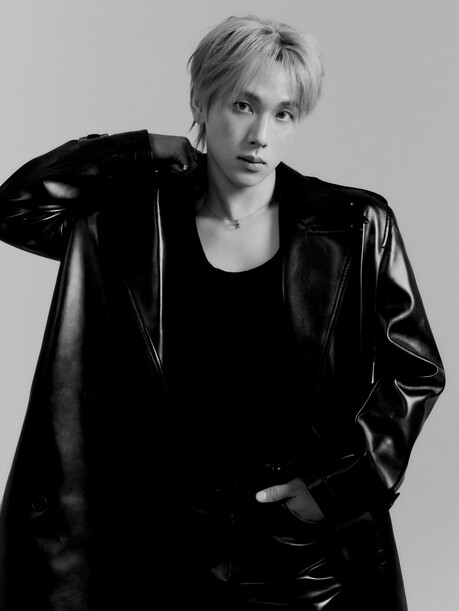Courtesy of CJ ENM
South Korean broadcasters are continuing the trend of reality TV audition programs featuring K-pop idol singers, with new formats being introduced to maintain viewer interest.
Mnet, known for producing the successful "Produce" franchise, launched "I-Land2: N/a" this month, serving as a sequel to the 2020 reality audition show "I-Land."
In the coming month, national broadcaster KBS 2TV plans to debut "Make Mate 1," a reality competition program aimed at forming a boy group with a global fanbase.
SBS has initiated the recruitment for "Universe League," the second season of its global audition program "Universe Ticket," seeking male participants to debut as a K-pop boy group.
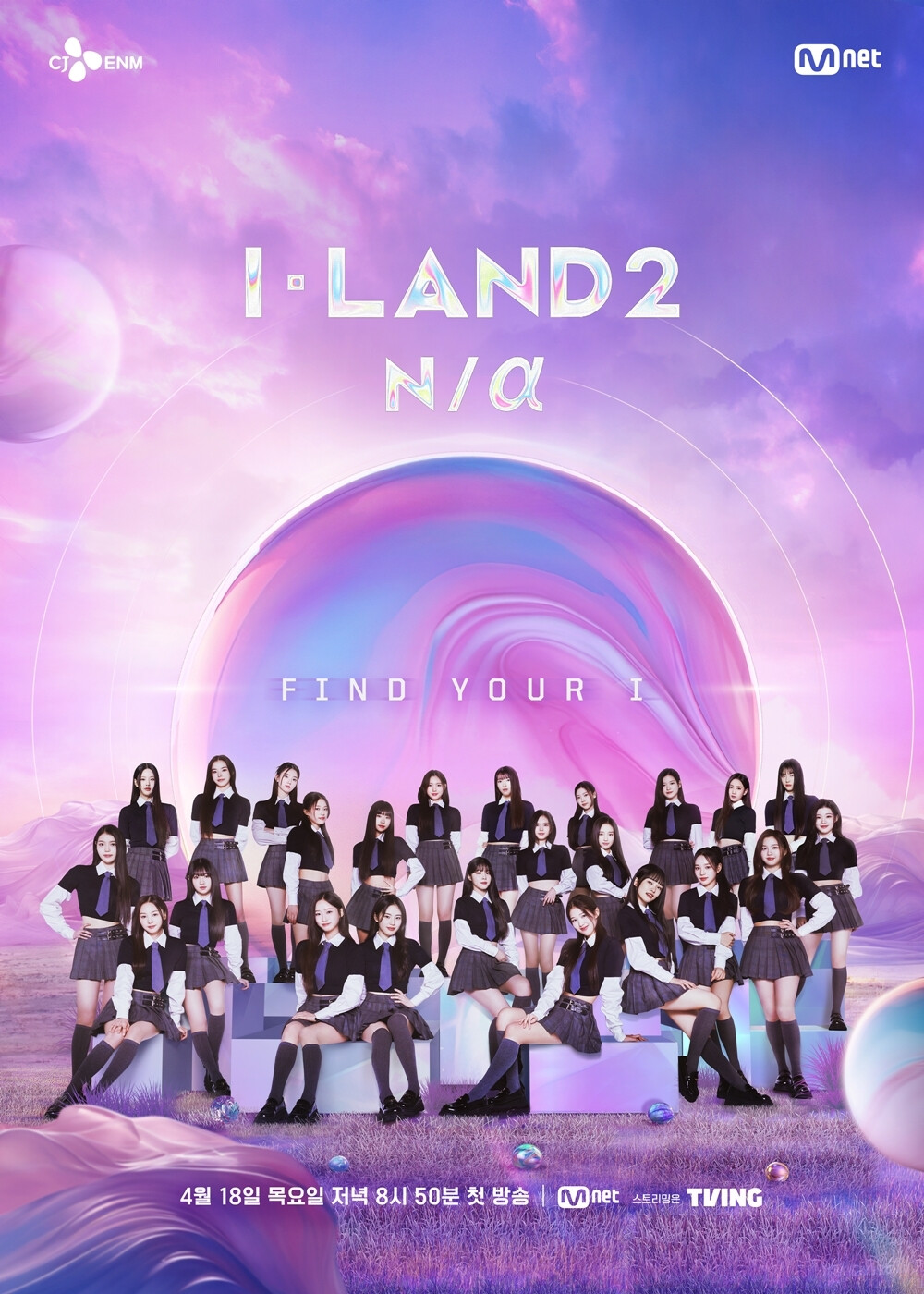 |
| ▲ Poster for “I-Land2: N/a” / Courtesy of CJ ENM |
Despite the proliferation of such programs, high viewership is not guaranteed. For instance, the highest rating for SBS' "Universe Ticket" was 1.1 percent, according to Nielsen Korea.
Experts highlight that broadcasters are primarily investing in these programs to tap into the lucrative fandom culture associated with K-pop.
By showcasing the process of participants receiving K-pop training, competing, and debuting as idols, broadcasters aim to build a global fanbase quickly, securing future revenue and business opportunities with the debuted groups.
Broadcasters experiment with new formats to appeal to diverse, young viewership, moving away from traditional Korean survival show styles.
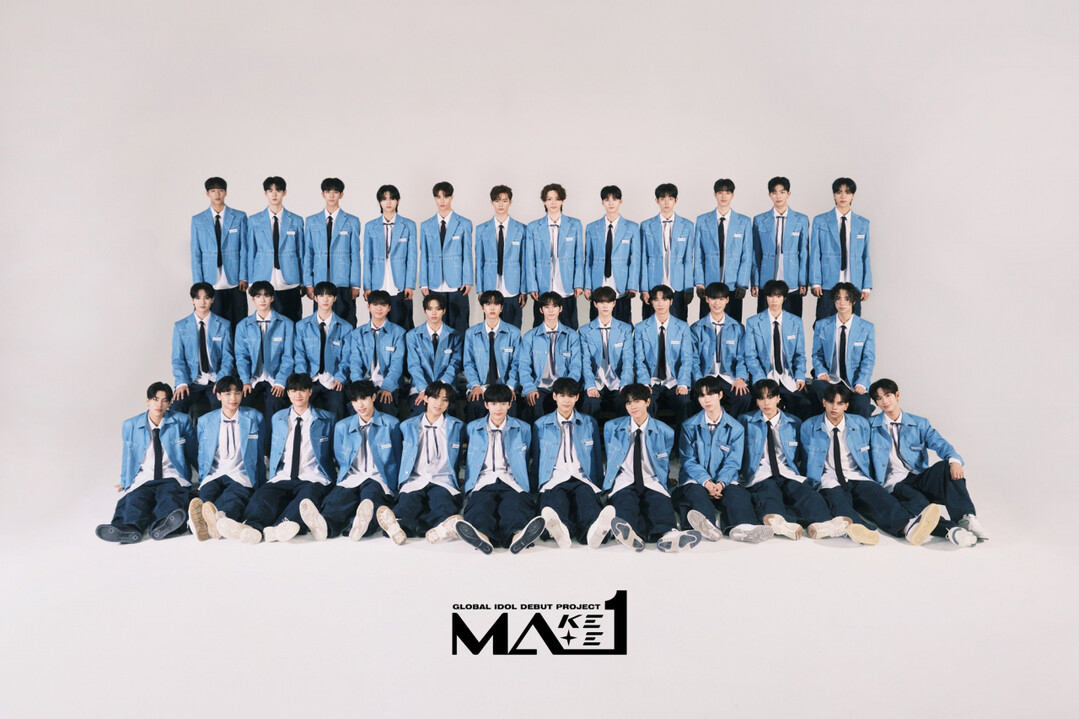 |
| ▲ Poster for “Make Mate 1” / Courtesy of KBS |
For example, "I-Land2: N/a" focuses on highlighting participants' potential and characteristics rather than emphasizing competition, while "Make Mate 1" aims to establish a relatable image for its global participants.
However, concerns arise regarding the longevity of popularity for groups debuting through audition programs. Past instances like UNB and Uni.T, who disbanded within 11 months after debut, highlight challenges in sustaining success.
While some groups struggle to gain recognition amid dominance from major agencies like YG, SM, JYP, and Hybe, winners of reality audition shows often make multiple attempts in other programs to secure success.
Critics point out that project groups formed through these programs face challenges in sustainability due to members belonging to different agencies, making it difficult to thrive post-contract expiration.
Sayart
Joy, nunimbos@gmail.com
Programs Aim to Cultivate Global Fandom Despite Mixed Success and Longevity Concerns
Courtesy of CJ ENM
South Korean broadcasters are continuing the trend of reality TV audition programs featuring K-pop idol singers, with new formats being introduced to maintain viewer interest.
Mnet, known for producing the successful "Produce" franchise, launched "I-Land2: N/a" this month, serving as a sequel to the 2020 reality audition show "I-Land."
In the coming month, national broadcaster KBS 2TV plans to debut "Make Mate 1," a reality competition program aimed at forming a boy group with a global fanbase.
SBS has initiated the recruitment for "Universe League," the second season of its global audition program "Universe Ticket," seeking male participants to debut as a K-pop boy group.
 |
| ▲ Poster for “I-Land2: N/a” / Courtesy of CJ ENM |
Despite the proliferation of such programs, high viewership is not guaranteed. For instance, the highest rating for SBS' "Universe Ticket" was 1.1 percent, according to Nielsen Korea.
Experts highlight that broadcasters are primarily investing in these programs to tap into the lucrative fandom culture associated with K-pop.
By showcasing the process of participants receiving K-pop training, competing, and debuting as idols, broadcasters aim to build a global fanbase quickly, securing future revenue and business opportunities with the debuted groups.
Broadcasters experiment with new formats to appeal to diverse, young viewership, moving away from traditional Korean survival show styles.
 |
| ▲ Poster for “Make Mate 1” / Courtesy of KBS |
For example, "I-Land2: N/a" focuses on highlighting participants' potential and characteristics rather than emphasizing competition, while "Make Mate 1" aims to establish a relatable image for its global participants.
However, concerns arise regarding the longevity of popularity for groups debuting through audition programs. Past instances like UNB and Uni.T, who disbanded within 11 months after debut, highlight challenges in sustaining success.
While some groups struggle to gain recognition amid dominance from major agencies like YG, SM, JYP, and Hybe, winners of reality audition shows often make multiple attempts in other programs to secure success.
Critics point out that project groups formed through these programs face challenges in sustainability due to members belonging to different agencies, making it difficult to thrive post-contract expiration.
Sayart
Joy, nunimbos@gmail.com
Related articles
- K-pop Group Ateez Announces Return with 10th EP, "Golden Hour: Part.1"
- Rapper I.M of Monsta X Announces Debut Solo World Tour
- Aespa Announces Release of First Full-Length Album, "Armageddon," on May 27
- Kim Jae-hwan to Release Seventh EP, "I Adore," on May 8



